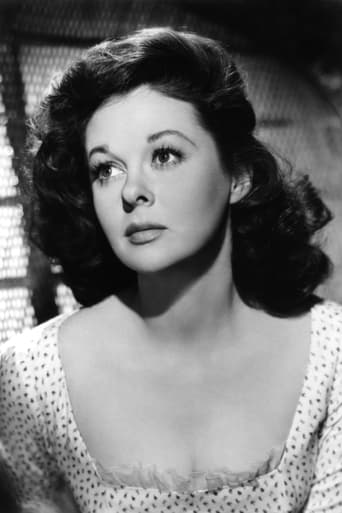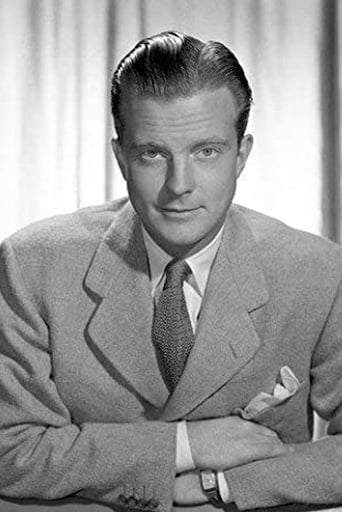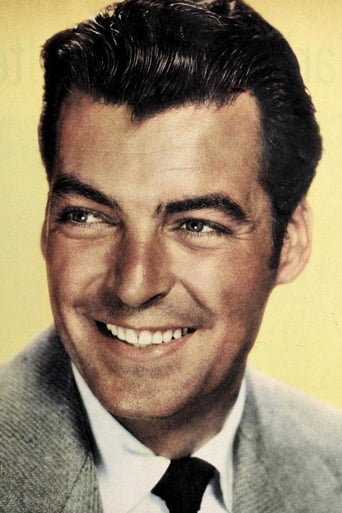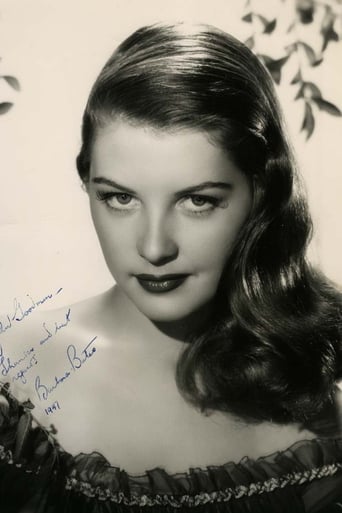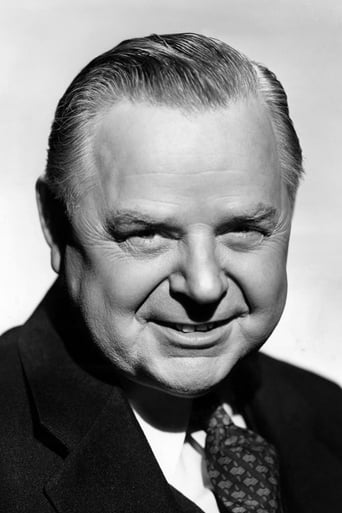gerdeen-1
Lamar Trotti, one of the finest writers in Hollywood during its golden age, was a native of Atlanta. The year before he died, he was both producer and screenwriter for this tale of a Georgia mountain preacher and his beautiful wife in the early years of the 20th century. The movie was shot on location in what was then a very rural area of the state, and Trotti promised the locals that their culture would be respected.He kept his word. "I'd Climb the Highest Mountain" avoids condescension toward the people of Appalachia and their religion, which makes it an unusual film. But thankfully it's not too sentimental either, though it is ultimately an inspirational film.The story is adapted from a 1910 novel by Corra Harris, a Georgia writer who was once nationally famous, and somewhat controversial, though she was not much remembered by the time the movie was made. Harris had been married to a minister herself, but the story was not autobiographical. It does have the ring of authenticity, though. The backwoods was really the backwoods a century ago, and a stylish, city-bred woman would have felt restless even if she was deeply in love. Henry King was a great choice to direct the film. He was religious himself, and at home with the material, and he had begun his long filmmaking career in the era in which the story takes place. Stars William Lundigan and Susan Hayward do an adequate job, though she seems just too glamorous for her surroundings. Ironically, from today's perspective, the fact that Lundigan is no longer much of a "name" makes him a better fit for the role of the preacher.The scenery is a big part of the film's appeal. North Georgia is not as spectacular as the Rockies, or even the Great Smokies, but it is a gorgeous area. And it was largely unspoiled when this movie was made.I notice that many Georgians writing about this movie have strong memories of the time when it was being made. In those days, it was rare indeed for a motion picture to be shot in Georgia. People drove from hours away to see what Hollywood types looked like. Susan Hayward's move to Georgia in the late 1950s had nothing to do with this film, and her new home wasn't in the mountains, but what she did was unusual for a Hollywood star of that era. She met and married a Georgian with the unglamorous name of Eaton Chalkley, and she lived with him on his farm when she wasn't making films. Chalkley was the love of her life. When he died, she moved out of the state because she couldn't bear to live at their home without him. When she herself passed away, she was buried beside him, in the cemetery of a church near his farm.Whenever I see "I'd Climb the Highest Mountain," I think of the Chalkleys.
moonspinner55
In the early 1900s, a city girl (Susan Hayward) marries a country parson (William Lundigan) from North Georgia's hill country, coming to live with him and be the proud preacher's wife, but there are obstacles to overcome. After a spunky start, this adaptation of Corra Harris' book becomes mired in pointless, pious melodrama, coated heavily with religious uplift (which may or may not be ingenuous). The film scores points for not making the minister a stodgy sort--on the contrary, he's frisky and playful, like an overage kid, so much so that his new bride seems like a cold fish by comparison. Still, their early days together have a folksy flavor which is appealing, and a sermon the preacher gives about marriage is full of happy tears. But when a mysterious fever makes the rounds, a boy is drowned at a picnic, and the wife loses her baby and her faith in God, the film drains itself of good will. Hayward has a fun sequence scaring away a wealthy admirer of her husband, but otherwise this character doesn't allow the actress to be friendly or capricious at all; she's a dullard. Lundigan, looking like a relative of Pat Boone's, has the more colorful role (surprisingly) and his sensitivity to the townspeople is well-captured. The Technicolor photography is disappointing, as is the direction and the script--why do religious-themed movies always have to turn sanctimonious? ** from ****
briantaves
I'd Climb the Highest Mountain is a representative achievement of one of Hollywood's most distinguished directors, Henry King. Working from the 1910s through 1962, King compiled a record of unparalleled duration, productivity, and artistry. Henry King's career is so long and prolific, and the documentation so immense, that he has, in effect, defied analysis by scholars. Born in 1886, he died in 1982, and during his 96 years he granted countless interviews, some of which have been published in an oral history; I was one of those so privileged to meet him, while finishing my Ph.D. at the University of Southern California. Henry King was gifted with an extraordinary memory and a skillful intellect that made such encounters particularly memorable. Many of you have probably seen King's commentary in Kevin Brownlow's series on Hollywood in the silent era some years back.King's films are better known than he is, and he prided himself on his ability to handle diverse stories. Examples range from such contrasting genres as historical adventure, like Romola, The Magic Flame, Lloyds of London, Stanley and Livingstone, Little Old New York, The Black Swan, Captain From Castile, Prince of Foxes, King of the Khyber Rifles, and Untamed; to melodrama, like Stella Dallas, I Loved You Wednesday, Seventh Heaven, Remember the Day, Deep Waters, Love is a Many Splendored Thing, This Earth is Mine, and Beloved Infidel; to westerns, like The Winning of Barbara Worth, Ramona, Jesse James, The Gunfighter, and The Bravados; to musicals, like Alexander's Ragtime Band and Carousel; to war films, like The Woman Disputed, She Goes to War, A Yank in the RAF, A Bell for Adano, and Twelve O'Clock High; and concluding his career with a trio of modern literary adaptations, The Snows of Kilimanjaro, The Sun Also Rises, and Tender is the Night.For some thirty years, the bulk of his creative period, King was associated with a single studio, Twentieth Century-Fox. He was a courtly gentleman of the old school, and his films reflect this mannered tone and pace. In all of his pictures, even his action films, King is most interested in the mind and motivations of his characters. He had a keen ear for the quieter side of life, and unlike so much of modern cinema, there are no displays of raw emotion. King values the ordinary, daily yet largely forgotten aspects of life, and is attentive to the silences, the pauses, the words left unsaid as well as those uttered. His characters tend to be isolated, even when in a group, and he accepts honest sentiment and is expert at depicting a convincing story of two people in love.I'd Climb the Highest Mountain is a film that reflects King's greatest achievement, the expression of Americana on the screen. Americana is the dramatic capturing of the values, culture, history, personalities, and character of the nation, a vision of the United States as a living entity of people and ideals. Such films can cut across many genres and ideologies. Among King's films of this type are Tol'able David, Lightnin', Over the Hill, the Will Rogers version of State Fair, Carolina, Way Down East, The Country Doctor, In Old Chicago, Maryland, Chad Hanna, Margie, and Wait Till the Sun Shines, Nellie. King's Americana is more than nostalgia, yearning for the rosy afterglow of a past that never was. He evokes the past in its full light, and memory can prove to be a bitter, wrenching experience, even with the the passing of the years.King also had a fundamental belief in the efficacy and importance of religious faith; he was a convert to Catholicicism, and his other religious films include The White Sister, The Song of Bernadette, and David and Bathsheba. I'd Climb the Highest Mountain is the key intersection in his work of these themes of faith and Americana, and was based on an old Saturday Evening Post story and filmed in the mountains of North Georgia.

